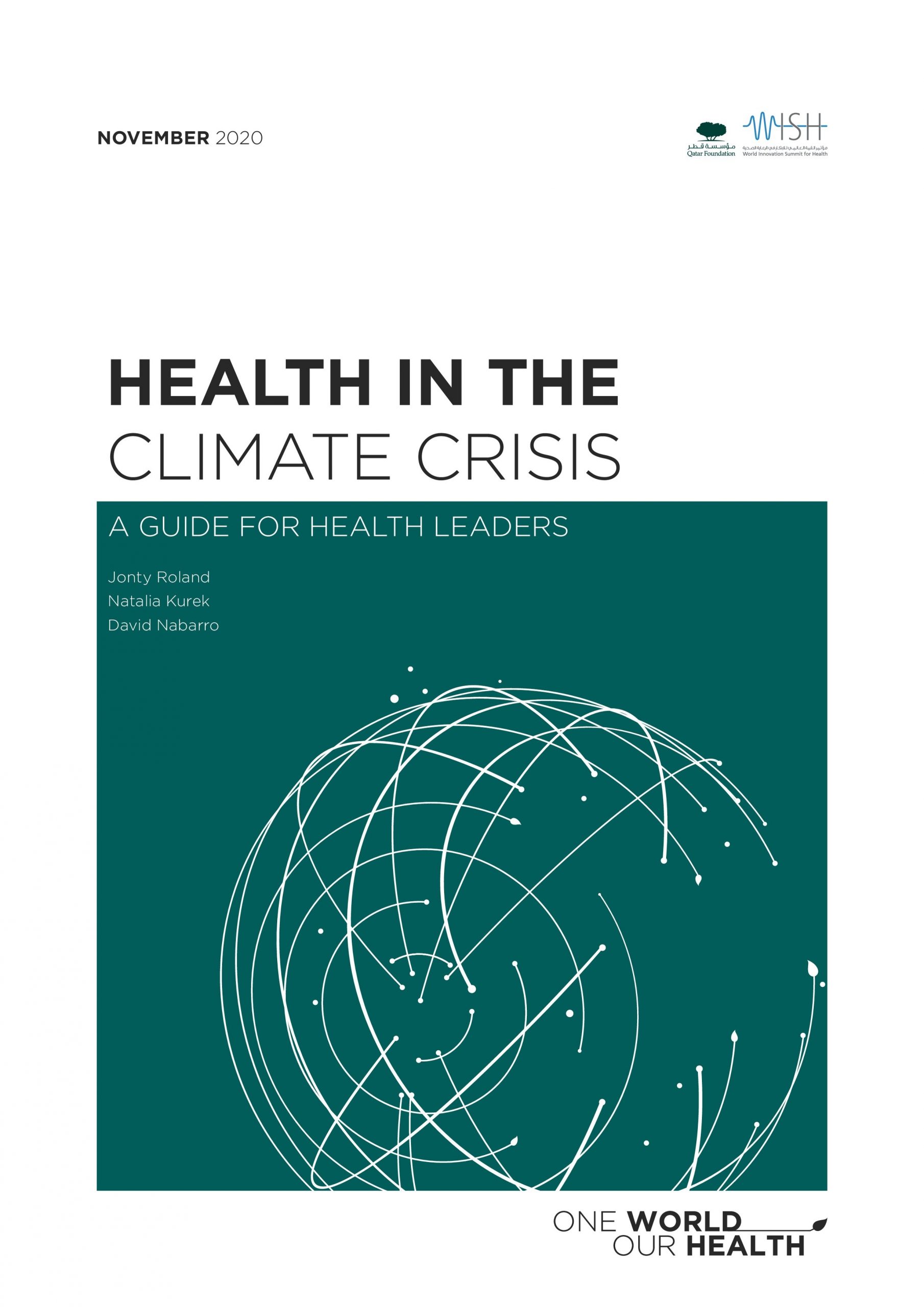Health in the Climate Crisis: A guide for Health Leaders
Jonty Roland, Natalia Kurek, David Nabarro
This report aims to provide a guide to health leaders into deliberate effective action against health crises in the midst of climate dangers.

Jonty Roland, Natalia Kurek, David Nabarro
This report aims to provide a guide to health leaders into deliberate effective action against health crises in the midst of climate dangers.
The health of people and the health of the planet are inextricably linked. Now, as evidence of the devastating effects of climate change on human health shifts from scientific projections to the daily news, health leaders are realizing their responsibility toward this crisis. This includes mitigating the worst effects, preparing their communities, and responding to the impacts as they come. But what does this mean in practice? This report seeks to equip health leaders with an understanding of what they need to know about the threats and opportunities that climate change creates for health. It outlines their unique role as innovators and influencers, and 10 key actions they can prioritize to respond.
There was a time when, for many working in healthcare, the climate crisis was someone else’s problem – the impacts would happen far away, or long into the future. Recent events from wildfires, storms, heatwaves and flooding have shown this to be untrue. As this report demonstrates, the health impacts of climate change are already evident in hospital and clinic waiting rooms every day, adding an increasing burden to already stretched health systems. Protecting the public as well as health systems and staff from these dangers is the responsibility – and opportunity – of every health leader: from health ministers to local service administrators. By doing so, they will create powerful new cross-sector alliances that will benefit their own healthcare systems and patients. The future of high-quality healthcare is resilient, low-carbon healthcare.
While not thought attributable to climate change, the COVID-19 pandemic gives a foretaste of this challenge. First, because it offers a ‘dress rehearsal’ for similarly exponential events, in which waiting until the worst impacts to happen before acting means that it is already too late. Second, because it shows the only way to achieve health security is for health leaders to position themselves at the forefront of inter-sectoral alliances. Third, that many of the most effective strategies to respond to climate change and COVID-19 are shared – in particular, innovation and a rebuilding of community-level public health infrastructure. Finally, that for all the devastating health and financial consequences of the pandemic, the resulting stimulus packages and recovery policies offer countries an opportunity to accelerate the creation of health-promoting low-carbon societies, rather than simply resurrect the same obsolete models of economy and care.